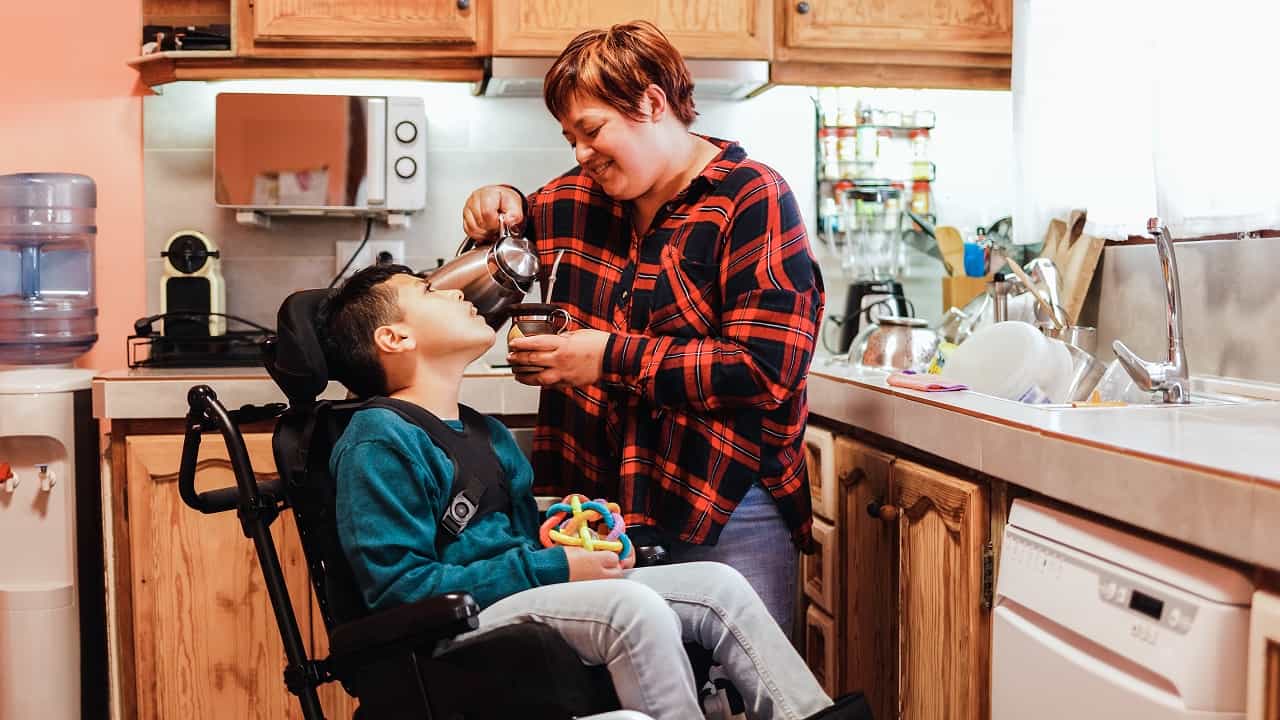In-home disability care is a form of care that provides assistance to people with disabilities in the comfort of their own homes. It is a form of care that can be tailored to suit an individual’s particular needs and preferences, and it is designed to help individuals live as independently as possible. In-home disability care can provide a wide range of services, from basic personal care to more complex medical needs.
Who Can Benefit from Disability Care?
One of the most common groups of people who can benefit from disability care is seniors. As people age, they may experience physical, mobility, and cognitive impairments that can make everyday tasks more difficult. With the help of disability care, seniors can receive assistance with activities such as bathing, dressing, and meal preparation. Additionally, disability care can provide emotional support and help seniors remain independent.
Individuals with physical disabilities can also benefit from disability care. People with physical disabilities may need assistance with activities of daily living, such as bathing, dressing, and grooming. Disability care can provide physical and emotional support to help individuals with physical disabilities manage their disabilities and remain independent.
Individuals with developmental disabilities can also benefit from disability care. Developmental disabilities can range from autism to Down syndrome and can affect the ability to communicate, learn, and interact with others. Disability care can offer a range of services to help individuals with developmental disabilities, such as job coaching, social skills training and vocational training.
Finally, individuals with mental health challenges can benefit from disability care. Mental health challenges can include conditions such as depression, anxiety, and bipolar disorder. Disability care can provide therapeutic support to help individuals manage their mental health challenges and remain independent.
In-Home Disability Care vs. Dedicated Care Facilities
In-home disability care is an option for those who wish to remain in their own home. This type of care allows individuals to enjoy the comfort of their own homes while receiving specialised care. In-home disability care also allows individuals to remain socially and emotionally connected to their local community, as they do not have to leave their homes to receive the care they need.
The primary benefit of dedicated care facilities is access to 24-hour professional medical care. These facilities are staffed by trained medical professionals and provide a wide range of services. Dedicated care facilities also provide social and recreational activities, as well as access to medical specialists and resources.
When deciding between in-home disability care and a dedicated care facility, it is important to consider the individual’s needs and preferences. In-home disability care is a great option for those who prefer to remain in their own home, while dedicated care facilities may be better for those who require advanced medical care or social support. Ultimately, the best option is the one that best meets the individual’s needs and allows them to live their best life.
There are three types of in-home disability care services: personal care services, respite care and skilled nursing care.
Personal care services are designed to help individuals with disabilities with activities of daily living. These can include things like bathing and grooming, dressing, meal preparation, and light housekeeping. Personal care services also provide assistance with medication management, mobility assistance, and other tasks as needed. These services are often provided by a trained and certified caregiver.
NDIS Respite care is a type of in-home disability care that provides caregivers with a break from the demands of caring for an individual with a disability. This can include providing companionship, engaging in recreational activities and providing general assistance. Respite care can benefit both the individual receiving care and the caregiver.
Skilled nursing care is specialised care provided by a registered nurse (RN). This type of care typically includes wound care, injections, teaching about medications, and other medical tasks. Skilled nursing care can be provided in-home or in a facility, depending on the individual’s needs.
Final Thoughts
In-home disability care is a great option for individuals with disabilities and their families. It can provide a safe, comfortable, and cost-effective alternative to nursing home care. Additionally, in-home care can provide a great level of independence and the ability to stay in the comfort of one’s own home.
Get home assistance in Bella Vista from OSAN ABILITY. We are an NDIS-registered provider based in Sydney, specialising in disability support, disability accommodation, community participation, domestic assistance, allied health and in-home aged care. Our properties are close to local amenities and services, with experienced staff who can support people with complex needs as well as people who prefer an individual style of living. Get in touch with us today!










